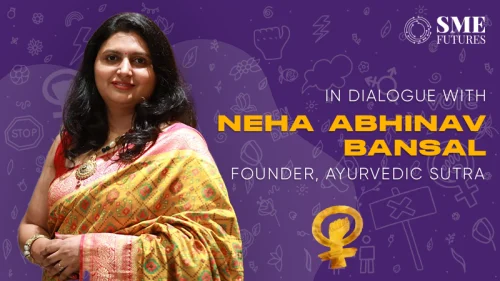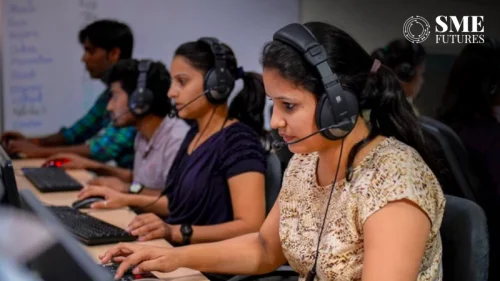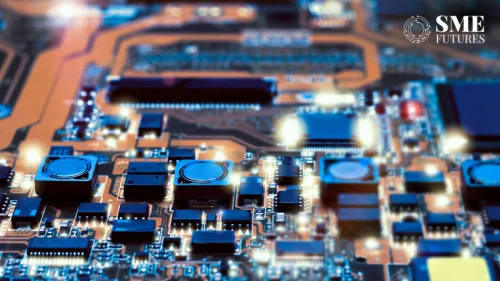Can you imagine a 125 km long line of garbage?
This is what the quantity of e-waste generated in 2019 can form. Apparently in figures, the global population has generated approximately 53.6 million metric tonnes (Mt) of e-waste, an increase of 21 per cent in 5 years.
According to the global e-waste monitor 2020, Asia generated the largest amount of e-waste which was 24.9 Mt i.e., 5.6 kg per capita. India is the third biggest contributor to e-waste with 3.2 Mt after China and the US which stand in first and second place, respectively. Together these three countries accounted for nearly 38 per cent of the world’s e-waste in 2019.
The report also states that out of the total e-waste produced, just 17.4 per cent was recycled. Moreover, the study predicts that the amount of e-waste could exceed 74 Mt by 2030, indicating an alarming increase of 2 Mt per year. These figures are just enough to tell us that e-waste is a problem which is fast increasing and needs to be tackled sooner rather than later.
But if you are wondering why, as it is not a priority for you, since unlike other kinds of waste, it really does not bother you that much; then you are wilfully ignoring the fact that it is too hazardous for us all to look away from.
What I have discovered about the scenario regarding e- waste in India is that all electrical and electronic equipment (EEE) and their parts, when deemed unfit, are usually considered as e-waste. It consists of metals, plastic, circuit boards, cables, cathode ray tubes and generates toxic substances such as lead, arsenic, mercury, selenium etc when dismantled and processed. In 2019 alone, 98 Mt of carbon dioxide equivalents were released into the atmosphere due to the inadequate recycling of refrigerators and ACs.
In fact, we are not only producing a great amount of e-garbage, but we are also importing it. Its collection, transportation, processing and recycling is still dominated by the informal sector, well known as the Kabadiwalla’s, which is a highly unregulated and unorganised sector. Seelampur in Delhi is the biggest dismantling centre for this purpose.
Fortunately, India is the only country in South Asia to have legal instruments in place since 2011 for e-waste management. Also, it has an organised e-waste management market which is growing steadily. As per a market study by Inkwood Research, this sector is bound to grow at a CAGR of 14.21 per cent in terms of revenue and 8.24 per cent by 2025. The reasons for this growth can be attributed to factors like the pollution caused by unmanaged e-waste, the absence of effective e-waste disposal processes and their harmful effects on human health.
For a long time there has been talk about how to get rid of e-waste, but it seems like it is not going anywhere. In fact, it continues to increase, as we are becoming increasingly digital and rely quite a lot on our electric and electronic gadgets. However, players in this field are trying to do their part through various initiatives.
One such company is Eco Recycling Limited aka Ecoreco, which has been in this segment for a long time and has come up with an initiative for proper e-waste management and awareness, spearheaded through an app called BookMyJunk. In a deep dive on this subject and initiative, BK Soni, Chairman and MD of Ecoreco had an extended conversation with SME Futures, where he talked about how India needs to tackle this problem.
Edited Excerpts:
Tell us about your first encounter with e-waste, how did you start Ecoreco?
I got introduced to the word e-waste in 2004 during a conversation with an Indian friend in the USA. To understand the subject better I immediately visited him in Atlanta, and I was really convinced about this opportunity from a business point of view to begin with. But as I started working on the subject, I realised that proper recycling of electrical and electronic waste also helps to better the environment, maintain a better ecological balance and create a better social fabric, when informal workers adopt environment friendly practices of dismantling and recycling of this hazardous waste.
While evaluating the opportunity, I also realised the fact that consumption of electrical and electronic devices has only an upward curve. Therefore, the generation of e-waste has no other alternative other than to grow exponentially.
I was fully convinced of the idea and hence started India’s very first electronic equipment refurbishing & reusing facility in 2005 in Panvel, near JNPT Port. We started importing used CRT Monitors from the USA and the UK to repair and export to neighbouring countries, which gave us a basic understanding of the subject matter and economics of the business.
This gradually grew via sourcing used or discarded electronic computers within India. For treating this e-waste, Ecoreco started India’s first e-waste recycling facility in Andheri (East), Mumbai on a rented premises. Simultaneously, I started introducing the concept of formal recycling of e-waste to the large corporate houses. As a result, there was a time in 2006-07, when as many as 87 companies deputed their representatives to learn about it. Meanwhile as we grew bigger, we shifted to Vasai East to a 25,000 square feet premises.

Our logo which was designed almost 14 years ago, represents and reflects our philosophy well, which is green environment, waste to gold, two stages of use and recycle of a product and dark eco to green eco.
According to me, most people believe in the 3R concept of Reduce, Reuse and Recycle, but at Ecoreco I believe that reduction in consumption is not favourable for the socio-economic growth of the country and certainly against the interests of the manufacturers of such items. As far as reuse is concerned, in the case of electronic devices, generally there is a pre-set lifespan of these products, and they cannot be reused often, but they can be used by more than one person.
E-waste is a huge issue, and it is only increasing. Do you think we are not taking it seriously? What can the consequences be?
Yes, e-waste is increasing very rapidly, but as I already mentioned this is a good sign of our socio-economic prosperity. In my opinion, we must not bother about the increased generation of e-waste. Rather we should look at this as an opportunity to develop the recycling industry in our country.
While it is not correct to say that Indians are not taking recycling of e-waste seriously, there are certain challenges as well. Primarily, India has a deep-rooted informal system of Kabadiwallahs in place. To transform them into an organised sector will take longer then envisaged by a certain section of the stakeholders. Also, the consequences of informal recycling will always remain negative and to overcome the same, Ecoreco suggests the three ‘T’ program of Training, Transport and Technology.

According to you, what is the bigger problem for India, the import of e-waste or it generating its own e-waste?
To transform and reach the recycling targets envisaged in the e-waste management rules, there is a need for a stricter implementation of the Environment Protection Act. In addition to that there is a need to drive large corporations to prioritize using authorised recycling facilities as against the existing informal methodology, which has been employed for a long time just for the sake of higher monetary gains.
This minor monetary sacrifice by corporates can easily help to get all of us better air to breath, cleaner water to drink and unpolluted fruits, vegetables, grains, seafood etc. If the aforementioned idea really gets implemented safely, anyone can say that our national productivity will be far higher, visits to hospitals will be far less and people will lead healthier and longer lives.
About the import of e-waste, I believe it is not official but looking at the recycling strength within our country, the government should allow the setting up of SEZ units for the recycling of e-waste, automobiles, batteries etc.
But unlike many countries such as Japan, do you think India has weaker waste management? Why are we still behind in tackling this issue, where do we lack?
I am sorry to differ with you but believe me, none other than India and Indians have the best segregating systems in their homes or offices. We keep all our discarded items in different drawers or in corners in our houses or offices. We often sell those discarded items to Kabadiwallahs for a certain price against the category they belong to. These items are segregated and put in different bins and then taken for recycling.
Once a Kabadi has paid some price to you, then he will have to get it channelised to the end user of the contents in this waste. Unfortunately, while in transit they apply non-environment friendly methods of recovering value out of the e-waste collected. This is what the point of concern is, nothing else. I believe that once these Kabadiwallah’s stop doing this and hand over the collected waste to authorised recyclers, the e-waste management job is much more safely done.
Did you know that these informal e-waste collectors and informal workers are always exposed to health hazards? The children of these workers hardly go to school and they spend more than 40 per cent of their income on medical expenses. They generally live to less than 60 years of age and women are the biggest sufferers. These are some of the particularly critical issues that the public needs to be made aware of along with the informal workers in this sector, the corporates and of course the policy makers and regulators as well.

Please shed some light on the BookMyJunk initiative, what is its main intent and how does it work?
I believe that e-waste generators can be segregated by their intentions. First are those who prefer to gain the maximum monetary value from their discarded devices and usually sell to a Kabadiwallah, who may apply polluting methods to recover the most value out of the same. The other set of generators of e-waste are those who like to opt for Responsible Recycling (R2) but want the recycler to come to their doorstep and collect these devices from them at zero cost to themselves.
Keeping this second category in mind, we have developed this mobile app by the name of BookMyJunk (www.bookmyjunk.com). This app provides a seamless, effortless and no cost service to the above-mentioned generators of e-waste. For sure, we have to spend a lot for a small amount of value from such e-waste, but at Ecoreco we have started this initiative as a part of our corporate social responsibility (CSR), and we encourage the concept of the awareness cum action-oriented approach as an awareness drive. As you probably know, the largest awareness campaign for COVID-19 is also being neglected. Another classic example is the awareness campaigns and warnings about cigarette smoking, which are hardly obeyed by most people. Therefore, I feel that until every awareness drive is not associated with a clear action plan, the desired results will not be generated.

So far, the app has been receiving an amazing response from people who are discarding their e-waste while keeping the environment in their minds above any financial gain for themselves. The users have to download the app, register and then they have to ask for free service. Currently, this facility is available in and around the city of Mumbai as western India accounts for more than 30 per cent of the country’s 3.2 Mt e-garbage generated annually.
This initiative not only deals with e-waste in a scientific manner and is collected directly from the end-users, but it also facilitates the producers of electrical and electronic equipment to meet their obligations and targets under the e-waste management rules. I am happy to say that BookMyJunk has already collected e-waste from over 700 places in Mumbai. From our experience so far, it has been proved that this app is a tested, trusty and trouble-free initiative.
What is the company’s roadmap down the line?
The company certainly has a very encouraging road map ahead. The first such step will be to construct and implement a large facility to recycle communication, computation & commutation equipment at one location. We envisage that our proposed facility will be capable of handling 100,000 Mt/pa.











